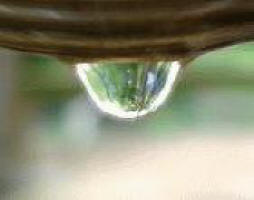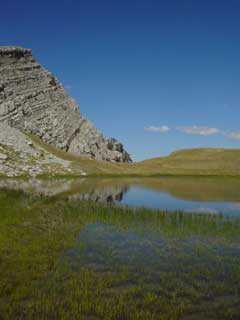Initiatives & Projects
 New sustainable concepts and processes for optimization and upgrading municipal
New sustainable concepts and processes for optimization and upgrading municipal
- The scope of sewage treatment is changing: Up to date municipal wastewater treatment plants (WWTP) were seen as an end-of-pipe treatment just before discharge, having the aim to avoid eutrophication and hygienic health hazard in surface water. Due to the global demographic trends as well as new legislations (e.g. the Water Framework Directive, WFD) increased focus is put on quantity and quality of effluents: WWTP are more and more seen as interface between sanitation and environment, delivering resources to the environment or human activities (recharge of drinking water reservoirs, recycling of nutrient, efficient energy use).
| Project number | SUSTDEV-2005-3.II.3.2 | ||
|---|---|---|---|
| Subject(s) | CHARACTERISTICAL PARAMETERS OF WATERS AND SLUDGES , DRINKING WATER AND SANITATION : COMMON PROCESSES OF PURIFICATION AND TREATMENT , ENERGY , SANITATION -STRICT PURIFICATION PROCESSES , SLUDGES | ||
| Acronym | NEPTUNE | ||
| Geographical coverage | Switzerland, Germany, Belgium, Italy, Denmark, Romania, Bulgaria, Austria, Norway, Sweden | ||
| Budget (in €) | 4908100 | ||
| Programme | INCO MED (FP6) | ||
| Objectives | - This focus shift has implications on the quality goals set for WWTP
products: • land requirement • effluent N, P load • effluent pathogen load • energy optimization New focus: •nutrient recycling • micropollutants: ecotoxicology of the effluent • energy production - NEPTUNE is focusing on technology solutions allowing to meet present and future standards via upgrading of existing infrastructure (new control strategies with online sensors; effluent upgrading with oxidation, activated carbon or wetland treatment; sludge processing for safe nutrient recycle) as well as via new techniques (fuel cell applications; new oxidative agents; polymer production from sludge). By including pathogen and ecotoxicity aspects into life cycle assessment studies (LCA), the project is helping improve the comparability of various technical options and propose a suitability ranking. The new focus given by the WFD and the emerging interest on organic (eco-)toxic compounds requires characterizing treated effluent and treatment technologies concerning ecotoxicologic aspects and micropollutants. The project is contributing to this discussion by ecotoxicity assessment and micropollutant fate studies. |
||
| Period | [01/01/2006 - 01/01/2009] | ||
 you are not logged in
you are not logged in





